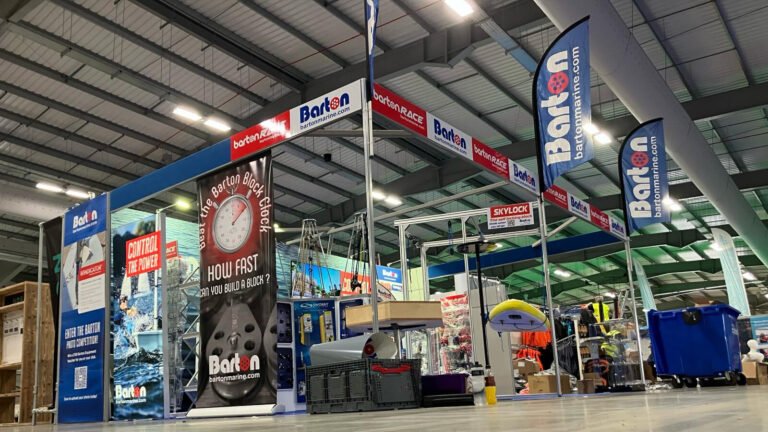Once the van finally reaches the border, it’s a quick stop at customs. “We were there for five minutes,” Bealey says. “The customs official was very pleasant, and we were waved through.”
But the journey back to the UK was a different story.
“Coming back into the UK, it was clear that the system was not working as intended,” says Webber. “The queue was two hours long. We were told that this was because not enough paperwork had been completed by the hauliers. It was chaos.”
“The customs official told us that they’d only had 20 minutes’ notice that we might be coming,” Bealey adds. “And that they’d need to check the van. They did, and found nothing untoward. We were then allowed to leave.”
It’s clear that Brexit has created a significant amount of red tape for UK businesses looking to exhibit in the EU. And as Barton Marine’s experience shows, the process is far from smooth, with added costs and delays.
As the marine industry continues to navigate the challenges of Brexit, it’s important for businesses to share their experiences and advocate for changes that will make it easier to conduct business across borders.
But until then, companies like Barton Marine will have to continue to navigate the complexities of the carnet system and other Brexit-related challenges, all while advocating for a return to EU collaboration and free trade.
Overall, the impact of Brexit on businesses like Barton Marine is undeniable. The increased paperwork, delays, and costs associated with shipping to and from the EU have made exhibiting at European shows more challenging. The time wasted waiting for paperwork to be processed and the uncertainty of how long the clearance will take add unnecessary stress to an already complex process.
Furthermore, the additional regulations such as GPRS and CBAM pose further challenges for UK marine companies, requiring them to adapt and comply with changing requirements. This, in turn, affects productivity and competitiveness in the global market.
Despite these challenges, Barton Marine remains committed to attending European exhibitions, albeit with caution. The company recognizes the importance of maintaining a presence in the EU market but acknowledges the limitations imposed by Brexit-related regulations and paperwork.
In conclusion, the negative financial effects of Brexit on UK businesses like Barton Marine are clear. The company has had to allocate additional resources to comply with new regulations, navigate complex paperwork, and deal with shipping delays. As the impact of Brexit continues to unfold, it is essential for businesses to adapt and find ways to mitigate the challenges posed by the new regulatory environment.
British Marine Takes a Stance on Brexit
British Marine has recently faced criticism for its perceived lack of a firm position on Brexit and how it affects its member companies. With the UK no longer being one of the largest allocation points for EU funding, many previous EU-funded projects for business and infrastructure upgrades have disappeared. This has led to concerns within the industry about the impact of Brexit on marine businesses.
Lesley Robinson, CEO of British Marine, acknowledges that Brexit is a complex issue that affects marine businesses in various ways. She emphasizes that the association is committed to supporting its members by providing guidance on regulatory compliance and market access. British Marine is actively engaging with policymakers to address industry concerns and offers tailored support and advice to businesses facing Brexit-related challenges.
While some industry stakeholders have called for British Marine to take a more decisive stance on Brexit, the association maintains that it is working diligently to represent the interests of its members at the highest levels. It continues to advocate for practical solutions to the regulatory and trading challenges that affect the marine sector, ensuring that the concerns of its members are heard and addressed.
British Marine’s ongoing efforts to support its members and navigate the complexities of Brexit demonstrate its commitment to the marine industry. By providing tailored guidance, engaging with policymakers, and advocating for practical solutions, the association is working to mitigate the impact of Brexit on marine businesses and ensure a prosperous future for the industry.
As the industry continues to grapple with the challenges of Brexit, British Marine remains a steadfast advocate for its members, providing valuable support and guidance to navigate the evolving landscape of the marine sector.

